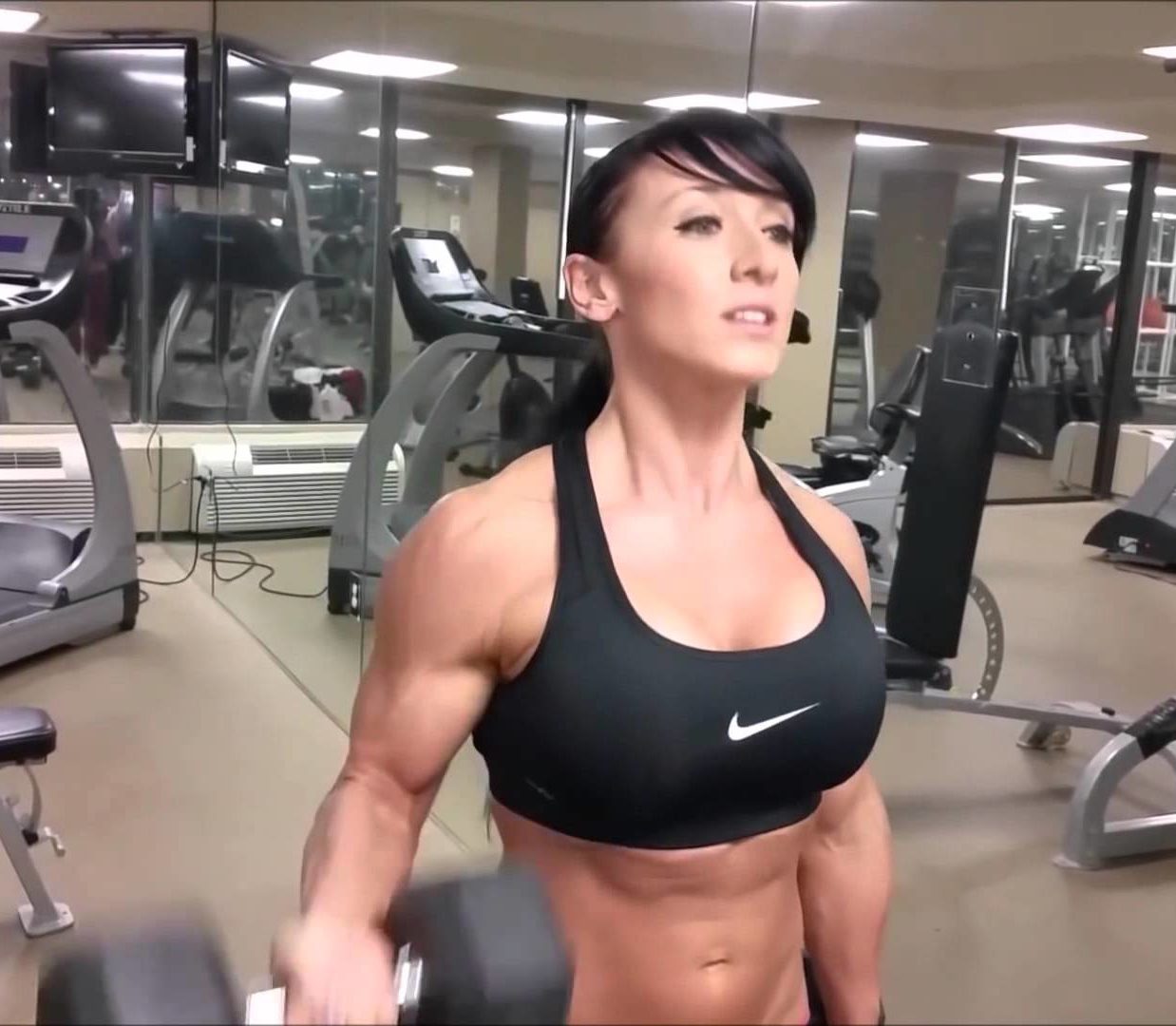2017.05.07 CSCS Daily Study Question:

An athlete is performing standing dumbbell curls. At which point of the exercise’s range of motion is the resistive torque greatest?
(A) At the bottom of the range of motion
(B) At the middle of the range of motion
(C) At the top of the range of motion
(D) At both the top and bottom of the range of motion
(E) Resistive torque remains the same throughout the range of motion
Continue Reading / scroll down for answer…..
Try Another CSCS Question of the Day
https://youtu.be/lhEIRMQuaJ4
Correct Answer:
(B) At the middle of the range of motion
Explanation:
When the dumbbell is in the middle of the range of motion, the distance between the weight and the fulcrum (elbow) is at its greatest, therefore creating the greatest amount of resistive torque. Torque is the product of weight and the distance between weight and fulcrum. If you follow the path of movement during a curl, the weight moves in a semi-circular arc, but if you were to measure the distance between the position of the weight and the fulcrum throughout the arc, you’d see that the distance is greatest at the midpoint and smallest at the top and bottom of the range of motion (when the weight is directly above or below the fulcrum).
Reference:
Essentials of Strength Training & Conditioning 3rd Edition p. 153
These CSCS exam practice questions were created to help users study for the Certified Strength and Conditioning Specialist certification exam from the National Strength and Conditioning Association (NSCA). Using CSCS exam practice questions is an efficient way to study the most relevant material for the Certified Strength and Conditioning Specialist exam. CSCS exam practice questions can help you to remember important concepts and test your knowledge of the material in a no-pressure environment. The Certified Strength and Conditioning Specialist designates that a fitness professional has the scientific and practical knowledge necessary to assist athletes to improve their physical performance.
If you’re like most strength and conditioning specialists, chances are that you like sports and you have a competitive mindset. For people who are competitive, doing practice questions is awesome because 1) they like to win, and 2) the sting of getting a question wrong burns the correct answer into the mind of a competitive person unlike any other learning method.
The Certified Strength and Conditioning Specialist (CSCS) exam by the National Strength and Conditioning Association (NSCA) is a four-hour-long, pencil and paper or computer-based examination. The Certified Strength and Conditioning Specialist exam has two sections: “Scientific Foundations” and “Practical / Applied.” Each of these sections consist of questions that the National Strength and Conditioning Association (NSCA) feels are relevant to test the knowledge and experience of a candidate for the Certified Strength and Conditioning Specialist (CSCS) professional credential. Certified strength conditioning specialist comprehensive questions from the Scientific Foundations section include anatomy, exercise physiology, biomechanics, and nutrition. certified strength conditioning specialist comprehensive questions from the Practical / Applied section include program design, exercise techniques, testing and evaluation, and organization / administration (NSCA, 2015).
2017.05.07 CSCS Daily Study Question

